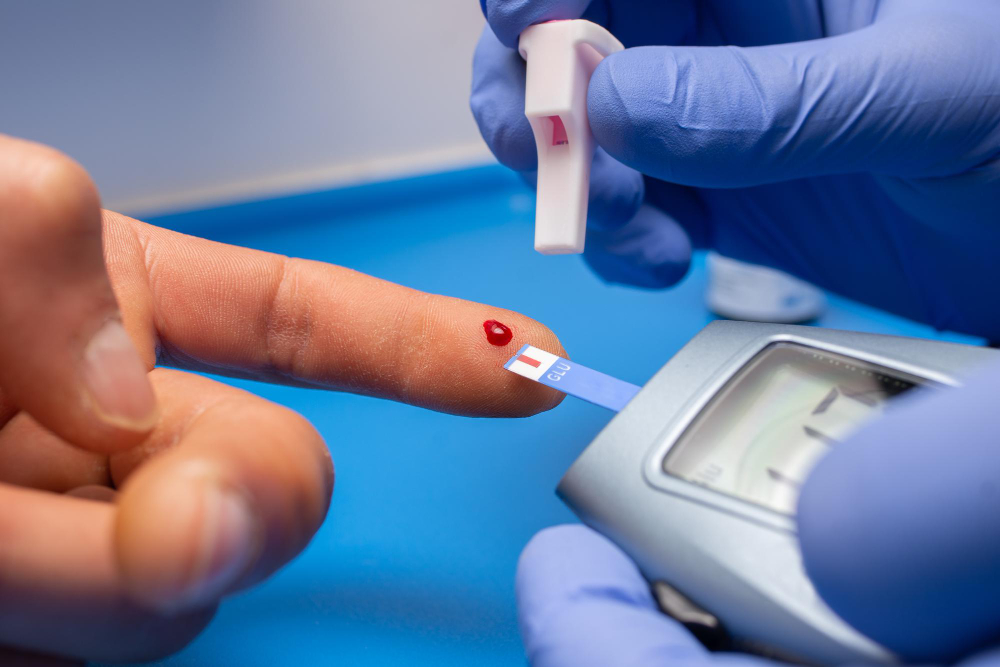Blood Glucose testing is one of the essential tests to monitor the health of diabetic patients individually. The actual quantity of glucose in the body is determined by its outcomes. Both low and high sugar levels can be harmful to the body’s metabolism. By keeping known amounts of Blood Glucose, they can be maintained with proper food habits, workouts & required medical prescriptions.
What Is Blood Glucose?
The body gets its energy from Blood Glucose. The Blood Glucose is formed by the intake of our food, which also provides us with energy. It flows to various tissues of our body through our bloodstream. It is important to keep your Blood Glucose level maintained to support your body’s metabolism.
Why Is Blood Glucose Testing Important?
- Managing Diabetes Screening
Frequent Blood Glucose testing is necessary for those suffering from diabetes. It helps figure out how well the problem is being managed and how well medications or changes in living are working. Problems brought on by uncontrolled blood sugar levels can be avoided with regular monitoring.
- Detection of Hypoglycemia and Hyperglycemia
Blood Glucose testing; tests the level of the individual’s Blood Sugar, whether it is high or low. Early detection of these disorders lowers the chance of serious health problems by enabling rapid treatment. - Guiding Lifestyle Choices
You can take the advice to control the levels of your Blood Glucose through your exercise & diet chart. You can consume various food products in your lifestyle that provide energy without affecting your blood sugar levels. - Management of Long-Term Concerns
Problems with vision, kidney illness, and nerve damage can result from persistently elevated Blood Glucose levels. A frequent assessment improves the prevention and early identification of certain chronic problems.
Procedures of Blood Glucose Testing
Blood glucose levels can be tested using a variety of techniques:
- Fingerstick Testing: Using this conventional technique, a tiny blood sample is collected from your finger and examined using a glucose metre.
- Continuous Glucose Monitoring (CGM): A sensor placed under the skin of a CGM patient constantly measures Blood Glucose levels day and night.
- Blood Draw Method: A lab tech uses venipuncture to take blood by sticking a needle into a vein in the arm or hand. In this way, blood is generally taken for medical tests.
Correct Time for the Test of Your Blood Glucose?
Many diabetics find that blood sugar testing helps them control their disease and avoid complications. Common testing times:
- Before and after meals
- Before and after exercise
- At bedtime
- When suffering from the symptoms of high or low blood sugar
Finding the best testing schedule for you will be aided by communicating with your healthcare professional.
Conclusion
The Blood Glucose check done with the correct evaluation process will give an accurate result. It will lead the individual to follow the appropriate preventive measures, treatments or daily routines for them. This will take them to the best quality of life, which can be frequently nourished by following the basic knowledge of their life.




